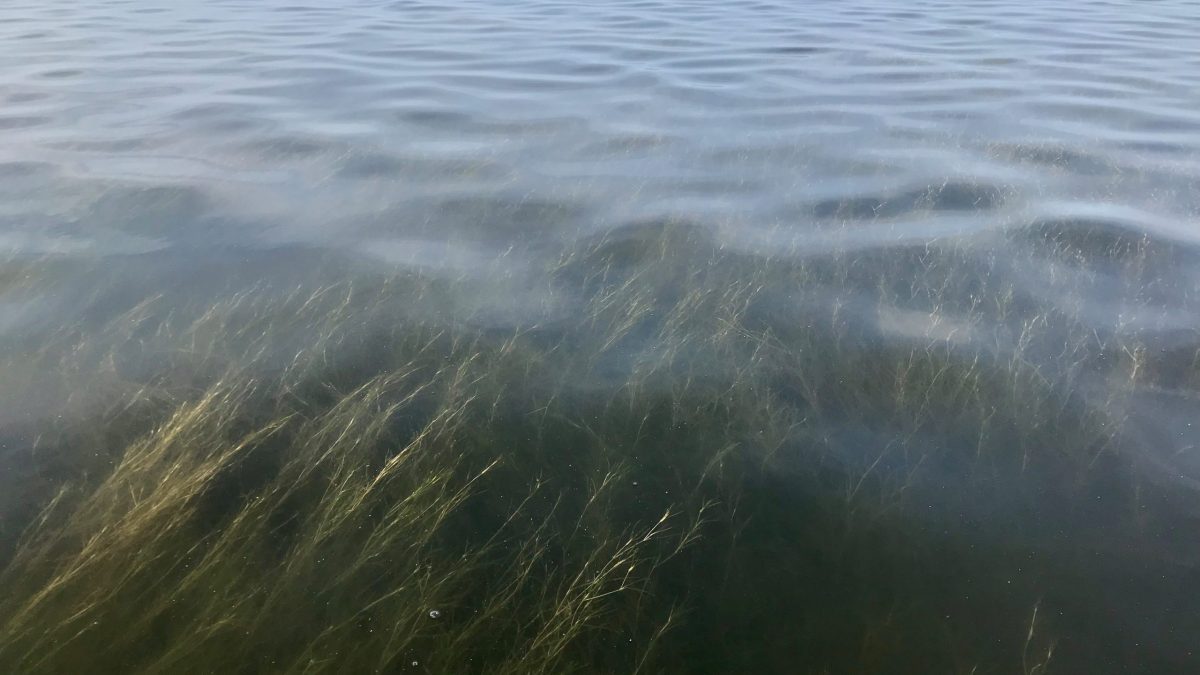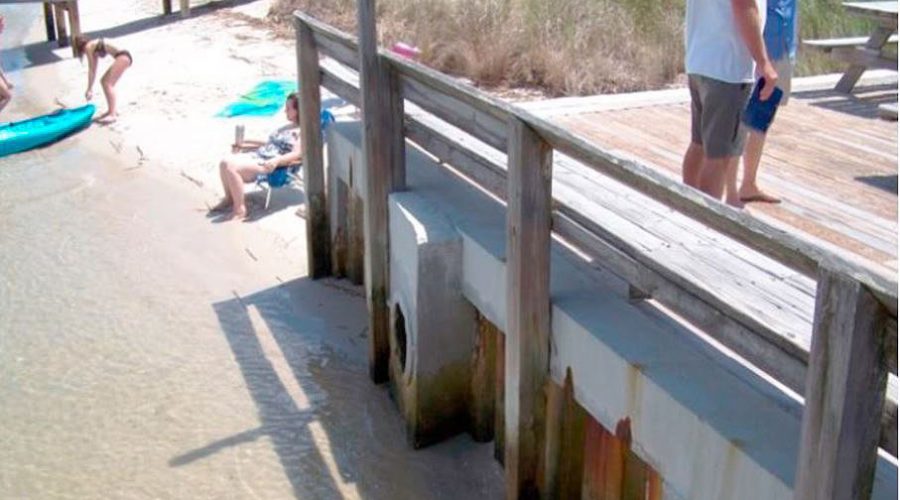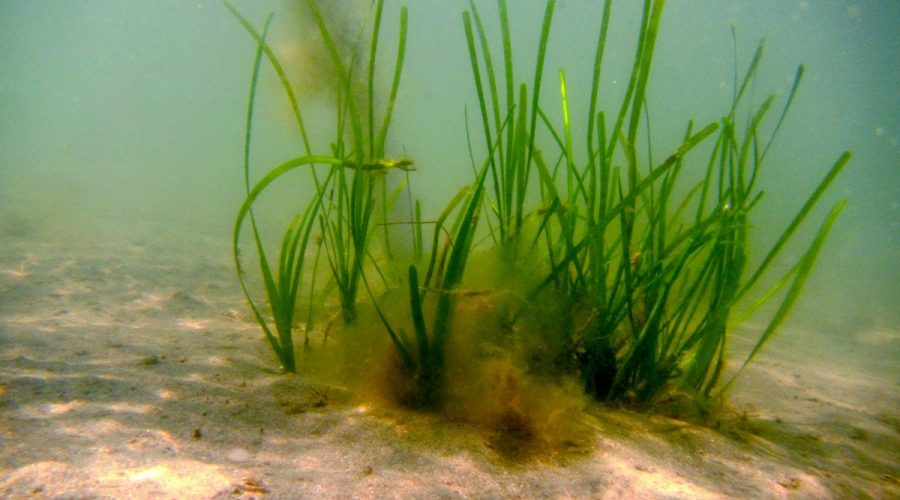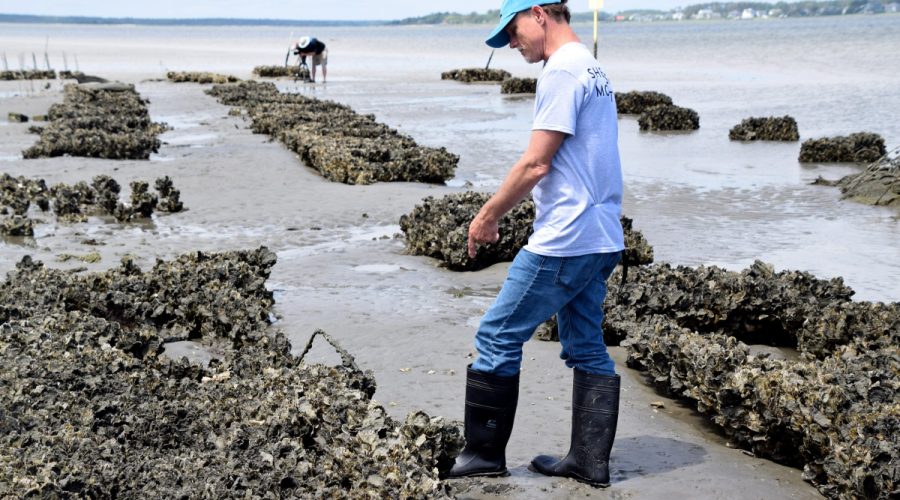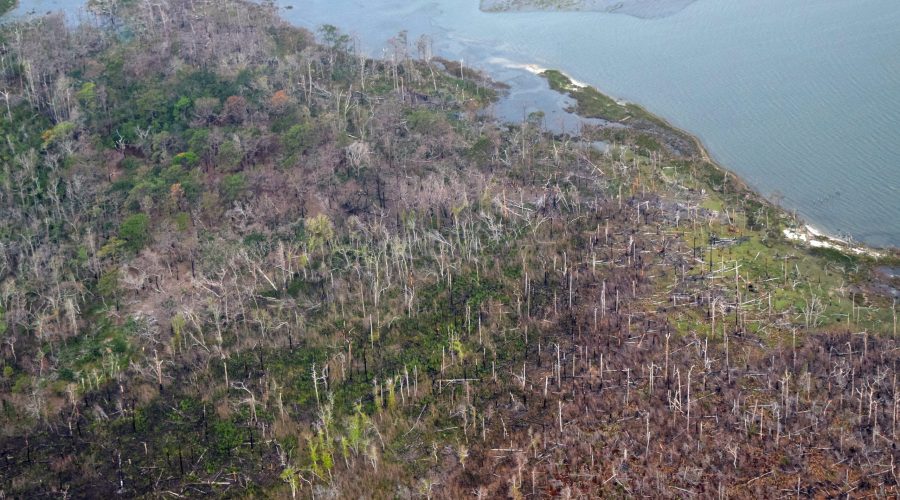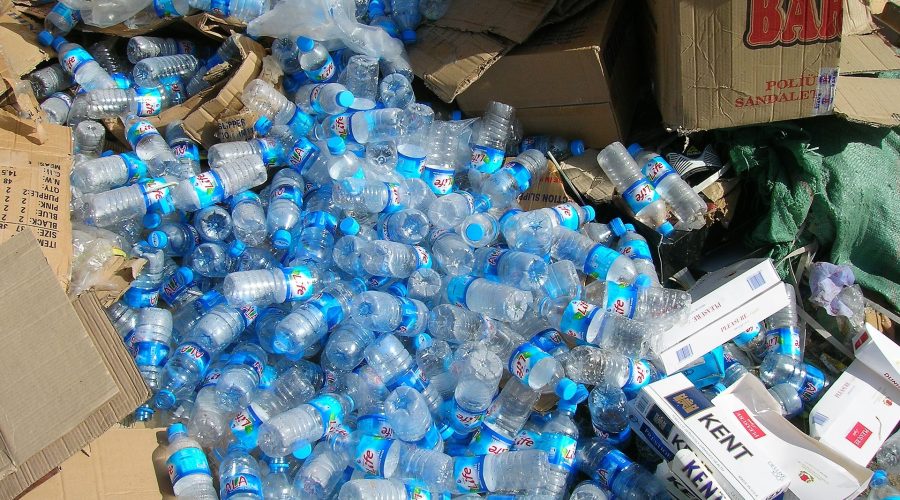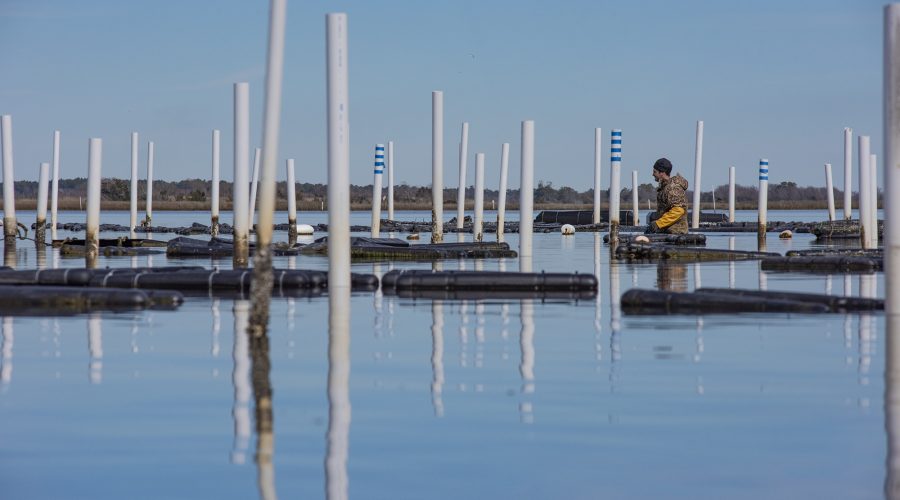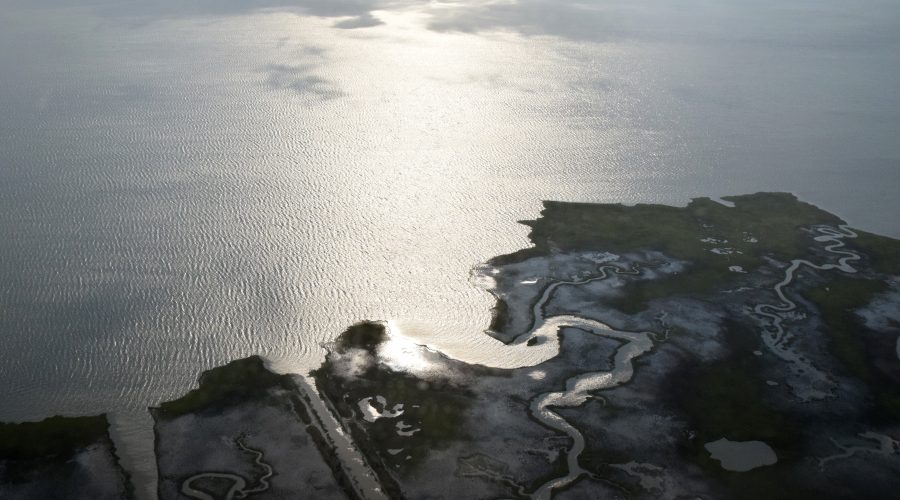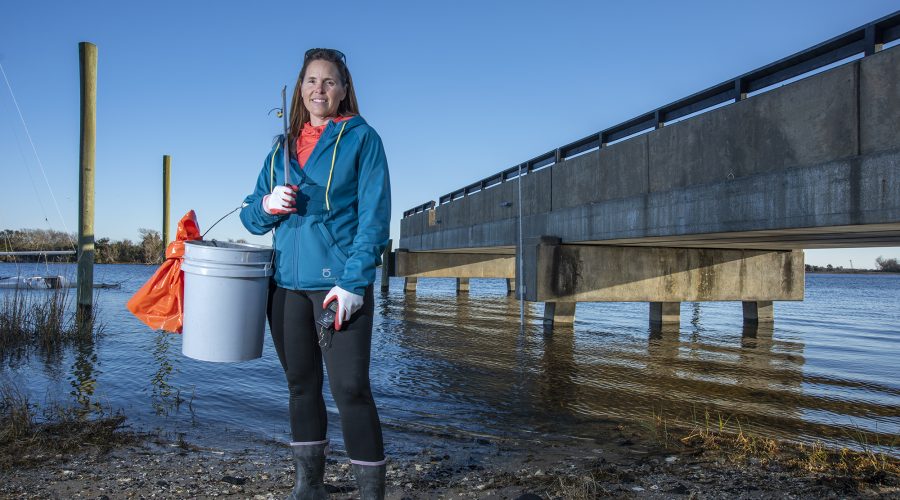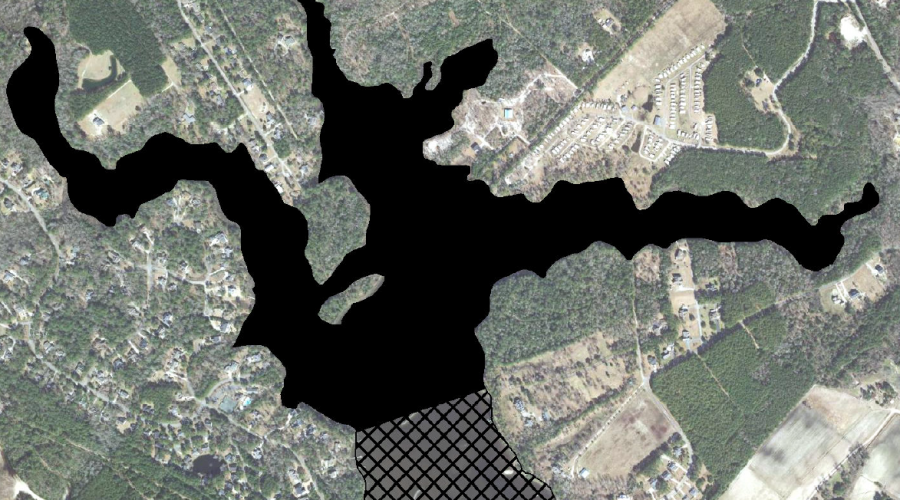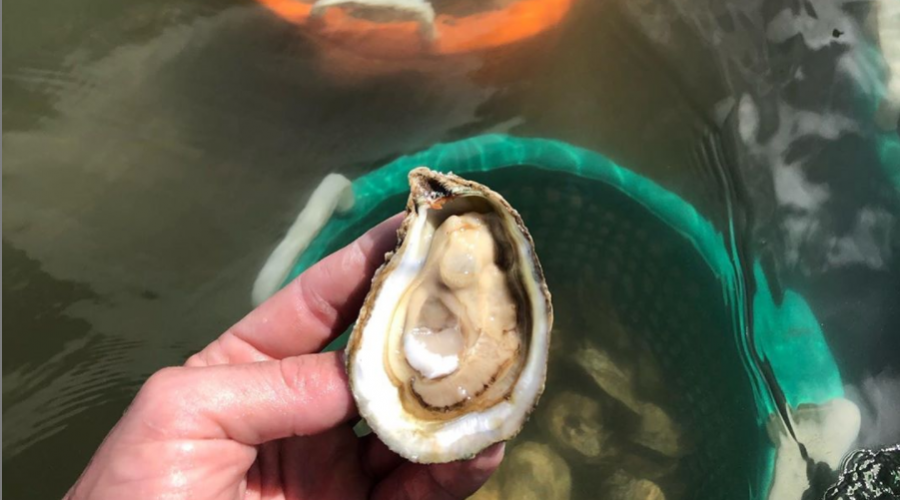A new report from Duke University and NC State estimates economic losses associated with the decline of submerged aquatic vegetation in the Albemarle-Pamlico estuary could total $8.6 million in 10 years.
Stormwater management can protect water quality: Study
Managing stormwater helps reduce the amount of pollution that ends up in the watershed, a recent study found.
Clams Can Boost Seagrass Restoration: Study
Seagrasses, a foundation of coastal habitat, are in peril and restoration efforts have a two-thirds failure rate, but a multispecies approach could improve success.
New Shellfish Permit Geared for Restoration
The Division of Marine Fisheries has created a new type of shellfish permit that allows oysters grown on leases to be used in habitat restoration.
‘Ghost’ Forest Expansion Rate Alarming: Study
A Duke University-led team studied 35 years of satellite images of the state’s Albemarle-Pamlico Peninsula.
Consumers Key to Reducing Plastic Waste
A recent study found that a 20% shift from consumption of small plastic bottles to larger plastic bottles could decrease U.S. plastic waste by 10,000 tons a year.
Engagement Key to Stump Sound Plan
A new project to improve water quality in Stump Sound includes a focus on community outreach about options for development that minimize polluted runoff.
Sea Level Rising More Rapidly: ‘Report Cards’
The recently released U.S. Sea-Level Report Cards from William & Mary’s Virginia Institute of Marine Sciences show that not only are seas rising faster, the acceleration rate is increasing.
Efforts On to Keep Litter Out of Stump Sound
Several efforts are underway to rid the area around Stump Sound of litter, just one aspect of addressing pollution of the state-classified outstanding resource waters.
Eat More Seafood: Latest Federal Guidelines
Americans should consume more seafood, less beef and pork, according to the latest federal dietary guide, and the change could also be good for coastal communities.
Tension Builds Over Old Aquaculture Practice
North Carolina’s shellfish relay program, in which farmers remove natural oysters from a polluted area to their own leases, is more than 100 years old, and some say the practice can’t end soon enough.
Ocean May Be Key to Feeding World: Study
A recent study projects that the amount of food produced from the ocean could increase by as much as 74% by 2050, but the researchers point to big obstacles, namely policy and regulation.

